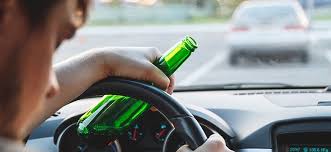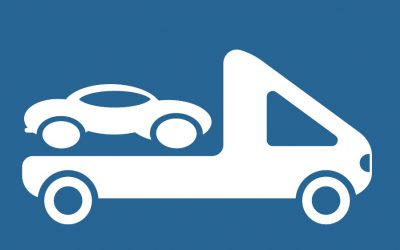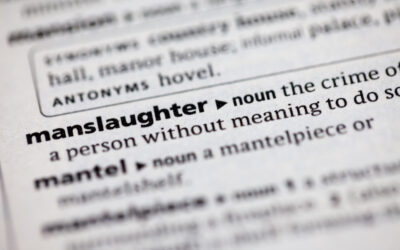Facing a first-time DUI offense in California can be confusing and upsetting. If you rarely run afoul of the law, you may be tempted to admit guilt and accept the penalties. However, a DUI charge, especially a first offense, can often be reduced or dismissed when you take the time to understand the penalties and how to defend yourself.
The first step is to stay calm if you are pulled over by law enforcement and avoid doing or saying anything that may suggest you are guilty. Afterward, the next most important step is to contact an experienced Los Angeles DUI attorney for help in deciding how to challenge your arrest and avoid facing any penalties.
What Happens After Your First DUI Arrest
There are a few things that happen when you are first arrested for DUI. Both the court system and the Department of Motor Vehicles (DMV) are involved. Regardless of whether you choose to fight your DUI, these steps are part of the process:
- After police officers process you, they will take away your driver’s license and give you a form that serves as your temporary license.
- You will also receive a notice of potential DMV suspension, which you must keep with your temporary license.
- The officers will then forward a copy of this notice to the DMV to process. The DMV will review the details of your case and usually decide to suspend your license.
The police arrest and charge drivers, and the court system decides whether they are guilty or not, but the DMV controls whether drivers are allowed to drive and when. You must work with these groups separately and understand their different requirements to successfully fight a DUI charge.
A First Offense DUI When You’re a Minor
With drivers under 21, the penalties and fees are no less severe and can often be much stricter than for those who are of legal drinking age. California has a zero-tolerance policy under California Vehicle Code (VC) §23136. This means that any percentage of blood alcohol concentration (BAC) is enough to warrant, at minimum, a suspension. The higher your BAC is, the more severe the punishments become.
How Blood Alcohol Concentration (BAC) Testing Works in California
The legal limit for BAC in California is .08%. California uses chemical DUI blood tests, urine tests, and breath tests. The current law states that when a driver is arrested for DUI, they give their implied consent to testing.
Breath testing is most common at the roadside. If a driver is taken to the police station for testing and detention, urine or blood testing will likely be performed to determine whether the intoxication is from alcohol, drugs, or both. If your BAC is under .08%, you will receive the temporary license and notice of potential suspension.
The temporary license is valid for 30 days, after which the suspension goes into effect, and you can no longer legally drive. However, more importantly, you have only ten calendar days from the date of arrest to request a hearing at the DMV. This hearing can provide key evidence for getting your DUI charge dismissed or reduced.
When Your BAC Is Over the .08% Limit
When your BAC is over .08%, your license will be suspended for four months, and you will not be able to drive legally for 30 days. After this period, you can become eligible for a restricted license which would allow you to drive to and from (or for) work. You would also be able to drive to DUI school (traffic school).
A restricted license can be issued after you enroll in DUI classes, submit proof of insurance to the DMV, and pay a fee for a license reissue. Refusing to take a BAC test of any kind violates the implied consent laws in California, and your license will be suspended for one year after the expiration of your temporary license. Having a qualified Los Angeles DUI attorney on your side is the best way to reduce or remove fines and expenses such as DUI school or interlock devices.
DMV Penalties for a First Offense DUI
Failing to request a DMV hearing within ten days, or losing the hearing, can have serious consequences. The DMV will suspend your license for a minimum of 4 months and require that you carry special SR-22 insurance before it will reinstate your license after the suspension period. SR-22 insurance is more expensive than regular insurance because your DUI arrest indicates you are a proven risk as a driver.
You will also face additional DMV fees, and points will be added to your license. You may risk further suspension or immediate revocation of your license if you accumulate 4 points within 12 months, 6 points within 24 months, or 8 points within 36 months. While the DMV works with the police and courts, it is not part of the court system.
Nonetheless, you do have rights within the DMV process, such as:
- You have the right to be represented by an attorney.
- You can request that your hearing be done in person rather than over the phone. Most DUI lawyers use this method because it is generally advantageous to your case.
- You can require the arresting officer to appear at the hearing and give testimony. Their story is often much weaker than you think it is. This can be invaluable to your case.
Your license suspension will get postponed until your hearing takes place. This is often months away and could allow you to resolve your DUI entirely in the court system without ever facing suspension. The best way to keep your license is to have a DUI lawyer handle the hearing for you.
Criminal Penalties for a First Offense DUI
While the DMV oversees how licenses are restricted or revoked, the court system handles the criminal process and penalties a DUI offender faces. When a person is convicted of their first DUI violation, California penalties can include:
- Mandatory jail sentence of anywhere from 3 days to 6 months. In some cases, the jail sentence can get waived as part of your probation
- Fines between $390 and $1000
- Additional financial penalties that can bring the total you owe to several thousand dollars or more
- Required attendance to at least three months of DUI classes
- DUI probation for 3-5 years
Your DUI will remain on your record for ten years. During that time, if you have any other DUI arrests, you will face much harsher penalties. Your DUI can also affect employment, college admissions, and other aspects of your life.
Additional Penalties for a First Offense DUI
In addition to criminal and DMV penalties, many drivers are required to install an ignition interlock device (IID). This device requires them to blow into a breath-testing device to start the vehicle. Drivers are responsible for paying the expenses of IID installation and maintenance. Costs for the device can average $70-$150 for installation and $60-$80 per month for maintenance. First offenders for DUI can choose one of two options for this device:
- A 12-month restricted license that allows driving to and from places like work and school, or
- A maximum 6-month requirement to use an IID after having their license reinstated.
Other possible penalties include mandatory alcohol or drug treatment, community service, or wearing an alcohol-detecting “SCRAM” bracelet on your ankle. While many of these penalties are not commonly given out in the case of a first-time DUI, drivers are at the mercy of the judge’s discretion. You can also face sentence enhancement and other mandatory penalties if you refuse to take a blood, breath, or urine test, if your blood alcohol level was very high, or if other aggravating circumstances are present in your case.
How DUI School (Traffic School) Works
DUI school, also known as traffic school, is required for all convicted DUI offenders. It is a series of classes you must pay for and attend, and you will need to prove that you completed them to the courts. The classes aim to teach you the dangers that driving under the influence poses to other people and yourself.
They also teach you to reflect on your use of alcohol or drugs and reduce or eliminate your use of these substances. Most first-time DUI offenders in California need to complete a 30-hour program that lasts three months. However, If your blood alcohol concentration was .20% (two and a half times the legal limit) or higher, you will be required to complete a 60-hour class that lasts nine months.
Failure to attend or complete these classes comes with additional penalties.
How DUI Probation Works
DUI probation is generally unsupervised probation, meaning no probation officer keeps an eye on you. However, during this time, you will have to follow specific rules. If you get caught breaking them, you face penalties for probation violations, such as:
- You cannot violate any law that results in your arrest.
- You must not drive during the period of your license suspension.
- You cannot drive with any measurable amount of alcohol in your system.
In the case where a driver has elected to install an IID and is driving on a restricted license, they are able to drive to and from (or for) work, as well as to and from their DUI school classes. These are baseline DUI probation requirements. The judge may impose other conditions as well.
If you violate them, you will almost certainly be sent to jail to serve any time that was waived at your trial. You may face other consequences as well.
Fighting a DUI Offense
Many people falsely assume that they must face and pay the penalties associated with a DUI arrest. It is important to understand that there are many ways to fight a DUI offense, even when it seems the evidence is against you. Your lawyer may have grounds for reduction or dismissal in situations such as when:
- A urine or blood test was incorrectly administered or interpreted.
- You are a woman, and the breath test read a falsely high BAC. Breathalyzers are calibrated for the average man, who generally has a larger body mass.
- The police made technical errors in your arrest or their reporting.
These techniques can often show enough doubt or faulty methods to reduce or overturn a charge. It is important to not give up hope when facing a DUI offense because you could end up paying thousands of dollars in fines and suffer years of inconvenience if convicted. Prosecutors may have a police report and test results, but your lawyer can request an arrest review, an examination of the testing procedures, and many other types of investigations.
Talk to a DUI Attorney Today
Don’t assume that you’ll get off the hook just because this is your first DUI offense. Understanding the penalties is only one part of the equation. The next part is hiring an experienced Los Angeles DUI attorney to help you with your case today.
Don’t hesitate to contact us for a free consultation.






